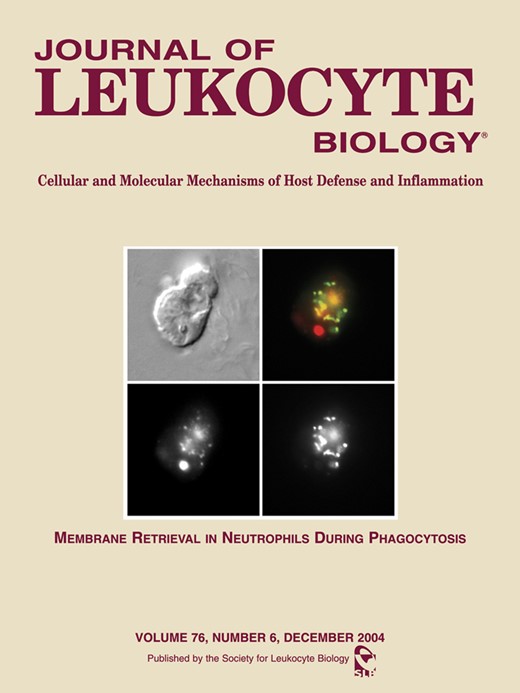-
Views
-
Cite
Cite
Fredrik Thorén, Ana Romero, Magnus Lindh, Claes Dahlgren, Kristoffer Hellstrand, A hepatitis C virus-encoded, nonstructural protein (NS3) triggers dysfunction and apoptosis in lymphocytes: role of NADPH oxidase-derived oxygen radicals, Journal of Leukocyte Biology, Volume 76, Issue 6, Dec 2004, Pages 1180–1186, https://doi.org/10.1189/jlb.0704387
Close - Share Icon Share
Abstract
The persistent infection caused by hepatitis C virus (HCV) is presumably explained by a deficient immune response to the infection, but the basis for the inefficiency of immune-mediated virus eradication is not known in detail. This study addresses mechanisms of relevance to dysfunction of cytotoxic lymphocytes in HCV infection, with a focus on the role of phagocyte-derived oxygen radicals. We show that NS3, a nonstructural, HCV-encoded protein, induces a prolonged release of oxygen radicals from mononuclear and polymorphnuclear phagocytes by activating a key enzyme in radical formation, the reduced nicotinamide adenine dinucleotide phosphate (NADPH) oxidase. The NS3-activated phagocytes, in turn, induced dysfunction and/or apoptosis in three major subsets of lymphocytes of relevance to defense against HCV infection: CD3+/56– T cells, CD3–/56+ natural killer (NK) cells, and CD3+/56+ NKT cells. Two inhibitors of the NADPH oxidase, histamine and diphenylene iodonium, suppressed the NS3-induced oxygen radical production and efficiently protected lymphocytes against NS3-induced apoptosis and dysfunction. In conclusion, we propose that NS3, by triggering oxygen radical formation in phagocytes, may contribute to the dysfunction of antiviral lymphocytes in HCV-infected liver tissue and that strategies to circumvent oxidative stress may be useful in preventing HCV-associated carcinogenesis and facilitating lymphocyte-mediated clearance of infected cells.





